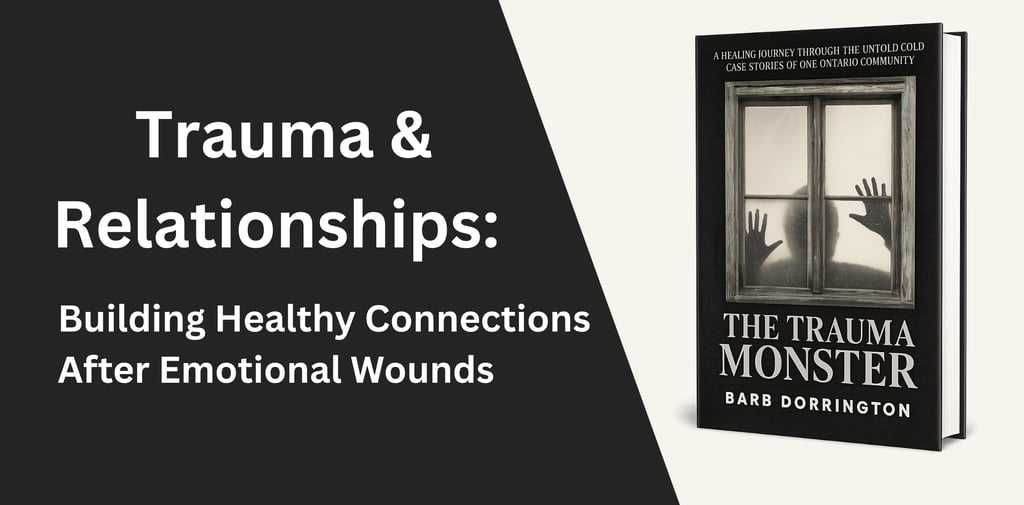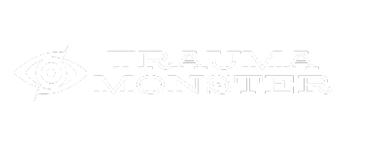Trauma and Relationships: Building Healthy Connections After Emotional Wounds
Barb Dorrington
6/30/20251 min read


Experiencing trauma can profoundly impact one's ability to form and maintain healthy relationships. In her compelling book, The Trauma Monster, Barb Dorrington highlights how emotional wounds can affect trust, communication, and intimacy, making connection challenging but not impossible. Healing from trauma doesn't mean you have to navigate your journey alone—healthy relationships can become powerful pillars of support and growth.
Trauma survivors often find relationships difficult because past experiences may trigger feelings of fear, vulnerability, or distrust. Recognizing and understanding these triggers is a crucial first step toward building stronger connections. By becoming aware of how trauma influences interactions, you can start establishing healthier relationship patterns.
Here are practical ways to cultivate and maintain healthy relationships after trauma:
1. Build Trust Gradually: Trust doesn't develop overnight, especially when past trauma has fractured your sense of safety. Allow trust to grow gradually through consistent and genuine actions from both parties.
2. Open Communication: Foster clear, honest communication. Share your feelings, boundaries, and needs openly with your partner or friends, creating an environment of mutual understanding and respect.
3. Establish Clear Boundaries: Clearly defined boundaries provide safety and predictability, vital for anyone healing from trauma. Respect your own boundaries and communicate them clearly to others.
4. Seek Support: Consider joining support groups or engaging in couples' or relationship counseling. Professional guidance can offer valuable tools and strategies for nurturing healthy, trauma-informed relationships.
5. Self-Care and Self-Awareness: Prioritize personal healing. The healthier your relationship with yourself, the stronger your relationships with others will be. Engage regularly in activities that support your emotional and physical well-being.
In The Trauma Monster, Barb Dorrington emphasizes that relationships can play a significant role in trauma recovery. Healthy connections foster resilience, validation, and emotional healing, turning relationships into powerful tools for recovery. Remember, trauma doesn't have to isolate you—it can become a bridge to deeper, more meaningful connections.


